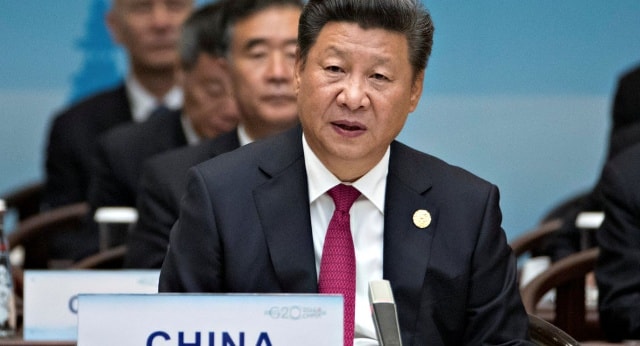The most difficult thing to say between Xi Jinping and Trump
When Chinese President Xi Jinping travels to the United States to meet with President Donald Trump on April 6-7, the two leaders will undoubtedly discuss the threat from North Korea. However, this is considered an issue that is unlikely to lead to joint decisions supported by both Mr. Trump and Mr. Xi.
 |
“If it’s not North Korea first, that’s a mistake,” said Derek Scissors, a scholar at the Enterprise Institute and economist who stressed that, in fact, the threat from North Korea is one of the few topics that both Beijing and Washington are preoccupied with.
According to Mr. Scissors, the Trump administration is not really ready to discuss with China on many issues. Currently, the US and China still have political disagreements on trade, currency, foreign investment and other economic issues.
Mr. Trump and the White House have in recent weeks refrained from using tense, harsh words toward China compared to during the campaign and after winning the election.
Instead, the Trump administration has made North Korea a top foreign policy priority, with Defense Secretary Jim Mattis choosing South Korea as his first foreign trip as Secretary of Defense. President Trump and his administration believe that only China can influence North Korea, but Beijing has not done its best.
As North Korea's largest trading partner, China is believed to have great influence over the country. Beijing stopped coal imports from North Korea in February following the murder of Kim Jong Nam and North Korea's missile tests, despite international condemnation.
Experts say that discussions on North Korea stem from the interests of both the US and China.
Recently, the Pyongyang regime has strongly warned US allies as well as the Trump administration by increasing missile tests capable of reaching northeastern China.
"The Trump administration will certainly put pressure (on China) to stop North Korea's missile tests and restrain the country. However, China, on the other hand, does not have much influence over North Korea," commented Mr. Bruce Bennett, senior defense analyst at the Rand Corp research organization.
Both superpowers are said to share common concerns on the North Korea issue but find it difficult to reach common decisions because they have different goals.
Beijing wants to maintain the status quo in Pyongyang, avoiding a scenario where North Korea collapses, which could trigger a massive refugee crisis at its borders or a reunified Korean peninsula, oriented toward the United States.
On the contrary, the US opposes maintaining the current situation as North Korea continues to develop missile technology and nuclear weapons.
"The policy of strategic patience has ended. North Korea must understand that the only path to a secure, prosperous economic future is to abandon the development of nuclear weapons, ballistic missiles and other weapons of mass destruction," US Secretary of State Rex Tillerson said during a visit to South Korea this month.
Commenting on whether the US and China can reach common ground on the North Korea issue, Charles Freeman, CEO of consulting firm Bower Group Asia and former assistant US trade representative for China affairs, said:
"The best outcome would be for the US and China to have a clear policy regarding how to deal with North Korea. I don't know for sure if that is possible or likely. But I'm afraid we - China and the US - are still at the discussion stage on North Korea."
According to Sputnik
| RELATED NEWS |
|---|

